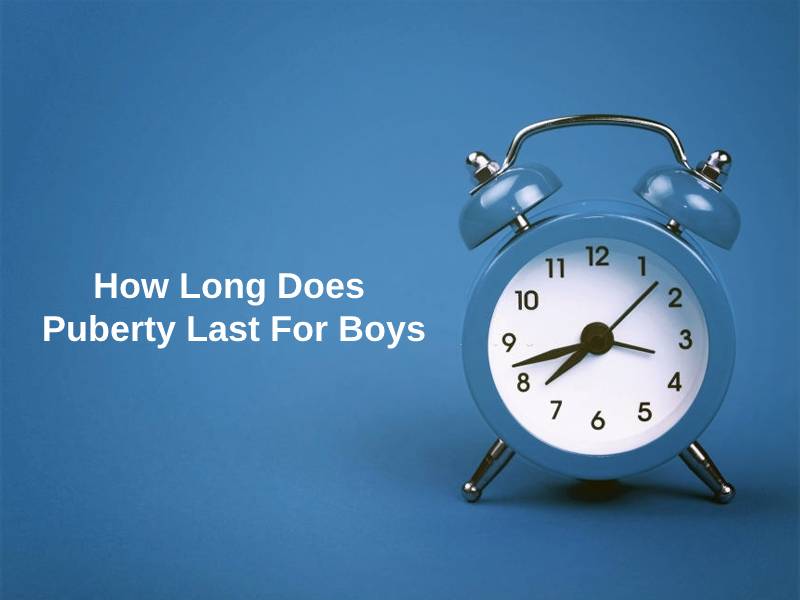Exact Answer: 2 to 5 years
Puberty is one of the many stages of life. In this phase, some physical changes take place in a child’s body. These changes help one gain sexual maturity. During this phase, people develop from child to adult through various changes that occur in the body. This phase is called adolescence. This is the phase of physical, cognitive, and social maturation.
Various hormones that are responsible for bringing puberty are testosterone. progesterone luteinizing hormone, follicle stimulation hormone etc. This no doubt is the most confusing stage of growth.

How Long Does Puberty Last For Boys?
Puberty is mainly the time that takes place between the age of 10-14 in girls and for boys, it may be anywhere between 12-16 years. Most boys finish puberty by the age of 15-16. This is the stage where the body grows faster than that at any other stage. It is to note that this timeline may vary for different teens.
The boys undergo a considerable amount of changes. Some of the changes are:-
- Enlargement of scrotum and testes.
- Growth of penis
- Pubic hair devlops.
- Body size increase. This may be uneven which result in the teen feeling clumsy.
- Oil and sweat glands increase their activity.
- Sperm production begins.
The following table shows the age in years v/s the changes that take place in boys bodies:-
| Changes In Body | Age In Years |
| Growth of scrotum and testes | 11-16 years |
| Change in voice | 11-18 years |
| Growth of facial and underarm hair | 13-18 years |
Why Does Puberty Last For This Long In Boys?
Puberty is that phase of life where an individual reaches full reproductive ability and develops features in order to attain sexual maturity. The changes in the body mainly take place before the rise in the level of testosterone hormone. It is the hormone responsible for secondary sex characteristics in boys.
The brain is responsible for initiating puberty. The main components of the brain that do this work are the hypothalamus and the pituitary gland. The brain signals the body to start puberty by sending certain signals to the body via hormones. Hormones basically are chemical substances that travel to different parts of the body. These are important for passing long-distance messages. Testosterone hormone promotes the development of the medial amygdala. Because boys make more testosterone, this region is bigger in boys.
Early adolescence is divided into three endocrine events. These are adrenarche, gonadarche, and activation of the growth axis. Gonadarche is marked as the biological beginning which involves the activation of the hypothalamic‐pituitary‐gonadal axis. This process begins between 9-15 years in males. During this phase, the gonadotropin hormone is released from the hypothalamus.
In Adrenarche, or activation of the hypothalamic‐pituitary‐adrenal axis takes place. An increase in adrenal androgens takes place to develop secondary sexual characteristics. During the last event of puberty is the activation of the growth axis, linear growth is seen in body size and composition. This takes place at 14 years of age.
Conclusion
Puberty is that time of life where the body undergoes several changes to attain sexual maturity. After this, an individual is able to reproduce its offspring. The age at which puberty hits is in between 13-16 years of age. However, this time period may vary in different individuals. For some people, these changes may begin at 9 years of age and for some, it may begin at 14 years of age. And it is completely normal.
As the hormones are at the absolute peak and all the changes taking place in the body, children may start to feel clumsy and irritated and this is a very common issue. Since the amygdala, which is the threat centre is large in boys, it is easy to see boys getting angry and frustrated easily.
Teenage no doubt is one of the most complicated phases of one’s life. During this phase, it is important to lay more emphasis on the development of healthy and active brains. In order to attain this positive behaviour should be attained, good thinking skills should be encouraged and children should be taught how to express their emotions.